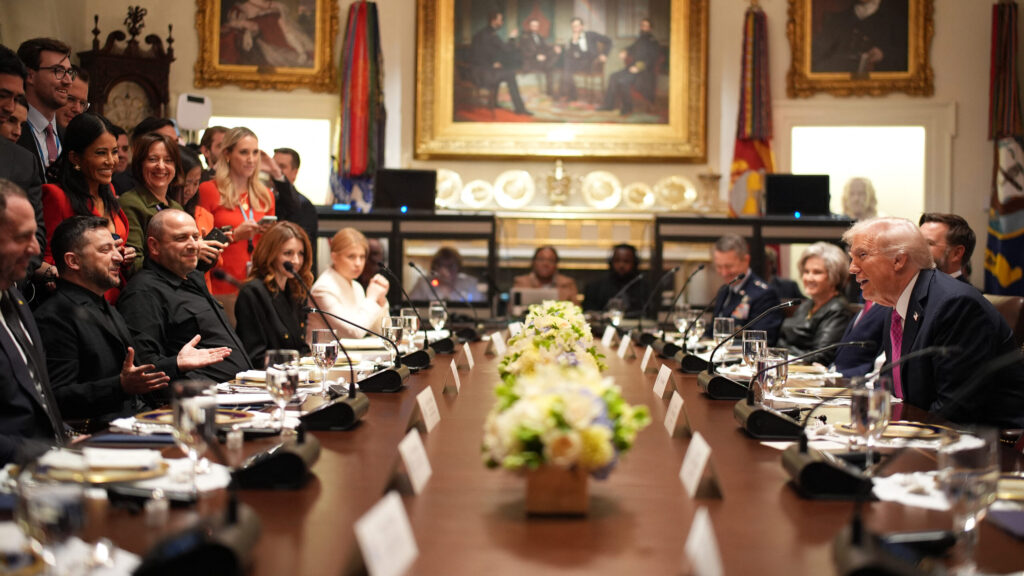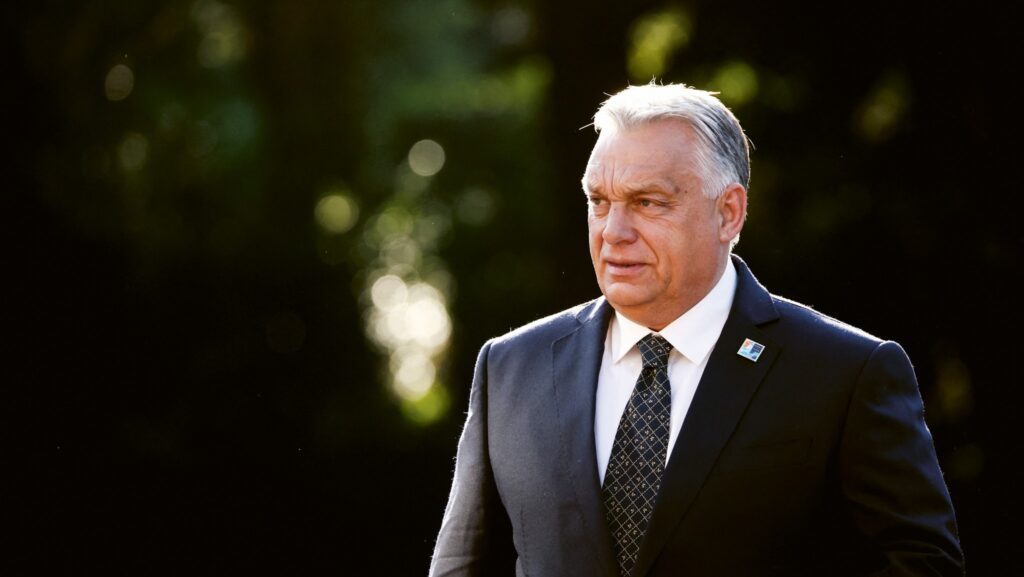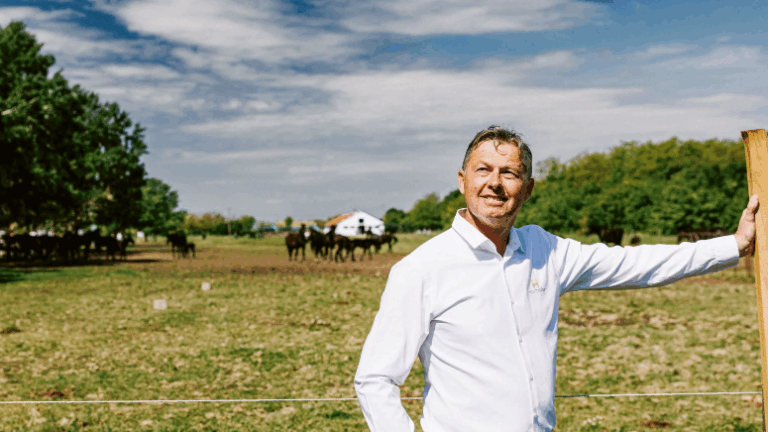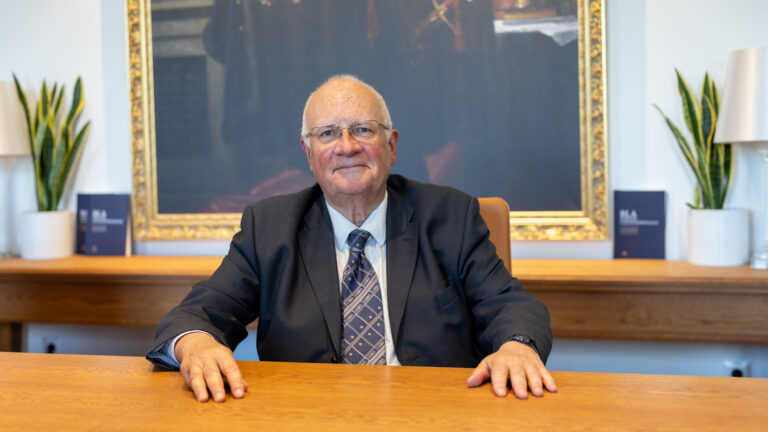Vlaams Belang (Flemish Interest), which strives for Flemish independence, is currently Belgium’s most popular party. However, according to Tom van Grieken, the leader of the party, it is not enough to win the opinion polls. He wants to win the elections. In an interview with Hungarian Conservative, the 37-year-old chairman said that if they reach 50 per cent of the vote together with other Flemish nationalist parties in the upcoming elections, they will put the issue of independence on the table and give the voters what they have longed for: an anti-migration and family-friendly policy.
On 9 June Belgium will hold federal and regional parliamentary elections simultaneously with the European Parliament elections. Tom van Grieken’s nationalist, anti-globalist, anti-immigration party, Vlaams Belang, is miles ahead of all other parties with less than a month to go before a general election, according to current opinion polls, and has become the largest party in Flanders, the wealthiest and most populous region, with polls showing it has at least 26–27 per cent of the Flemish vote. On a federal level, Vlaams Belang is not part of the seven-party Belgian government. Tom van Grieken, with whom we had the opportunity to talk at CPAC Hungary in Budapest, told Hungarian Conservative: the biggest problem is that while the Flemish people represent about 60 per cent of the Belgian population and pay 70 per cent of taxes, their voice is barely heard, so they don’t even have the opportunity to change the system that defines their everyday life.
‘This is why the first point of our election programme is Flemish independence’,
emphasized van Grieken. He added: the so-called conservative New Flemish Alliance (N-VA) also supports Flemish independence, so the importance of the topic may even be able to overturn the ‘cordon sanitaire’ after the elections.
The term comes from medical parlance and denotes a guarded line used to close off an infected area. In political terms it means a refusal to co-operate. But The agreement between political parties has not stopped the rise of Vlaams Blok and its successor party, Vlaams Belang. If a right-wing nationalist government emerges in Flanders after the elections, after both N-VA and Vlaams Belang have Flemish independence as their main campaign message, ‘why should we stick together with the rest of Belgium?’, Tom van Grieken remarked. In the few weeks until the elections, they will, therefore, encourage everyone to go to the polls. ‘It is not enough to win the opinion polls, we want to win the elections. The bigger we are, the more pressure we put on the cordon sanitaire to be lifted,’ said van Grieken. The party leader emphasized: ‘If, together with the other Flemish nationalist parties, we manage to get about 50 per cent of the votes, we will be given the authority to put Flemish independence on the table.’ He added that this does not mean that independence will be achieved immediately in a chaotic manner. Such a process could take up to five years, but even during that period, a political group representing patriotic interests would be in control. This means that they could
finally give people what they have long wanted, what they voted for: anti-immigration policies and family-friendly patriotic identity politics.
At the same time, the politician also admits that although independence is the main campaign message, migration is the main reason why people vote for Vlaams Belang. As a party that campaigns against immigration, Vlaams Belang rejects the EU Migration and Asylum Pact, which establishes a solidarity mechanism between Member States in hosting refugee applicants while toughening conditions at the Union’s external borders. The Flemish nationalists also oppose the European Green Deal aimed at making Europe carbon neutral by 2050, combating climate change; and they denounce any policies (allegedly aimed at) supporting the rule of law, claiming they diminish Member State sovereignty. As van Grieken argues: mass immigration affects not only on the economy but also the region’s identity. Belgium’s population is currently 11.7 million and growing slowly. But without migration, it would shrink fast, as there are more deaths than births. An average of 160,000 come into the country every year and around 110,000 leave, leaving a net immigration balance of around 50,000.
In relation to the upcoming European Parliament elections, Tom van Grieken said: just as in the case of the regional and EP elections, he is afraid of the risk that many people would rather not go to vote. ‘It may be that many people think that according to the forecasts a high conservative victory is expected anyway, so they prefer to stay at home and not go to vote. This should not be done. Every vote counts, every vote is important, the voters must now make their voices heard,’ he emphasized. He underscored the importance of right-wing and nationalist parties winning more seats in the European Parliament to pressure the European Commission to change Europe’s direction. ‘Although I believe national elections are even more important, considering the fact that
the European Council is the key decision-making body where we need nationalist leaders to jointly oppose the globalist agenda,’
he added. As he said, that’s why ‘you can’t tell people enough times to go vote!’
When asked why he considers conservative gatherings such as CPAC Hungary in Budapest important, Tom van Grieken stressed that conferences like the CPAC are important nowadays for two reasons.
‘First, it gives us energy because if we do a political battle in our own countries, we often feel that the media, the other political parties and the system are against us. Then we come to such a community, and we finally have the opportunity to recharge. This atmosphere is very important, because in this case we can experience that we are not alone in our patriotic struggle. Second, even though we come from all kinds of political and cultural backgrounds, we can learn from each other. The mutual exchange of experiences makes the international community of conservatives wiser.’
Regarding the role of Viktor Orbán and Hungary in the European Union, van Grieken underlined: it is certainly an undeniable fact that Hungary has been playing an important role in planting conservative seeds all over Europe. ‘Viktor Orbán showed us that an alternative to the leftist, open-border government is not only possible but can be highly successful and popular amongst the people. That’s inspiring. However, for it to be a true success, the seeds planted by Hungary in the rest of Europe have to sprout as well’, he explained. Tom van Grieken added: that is not the responsibility of Viktor Orbán or the Hungarians but of right-wing politicians in other countries .







